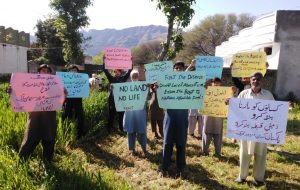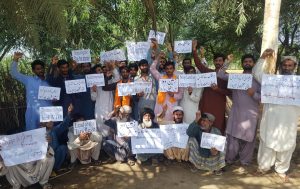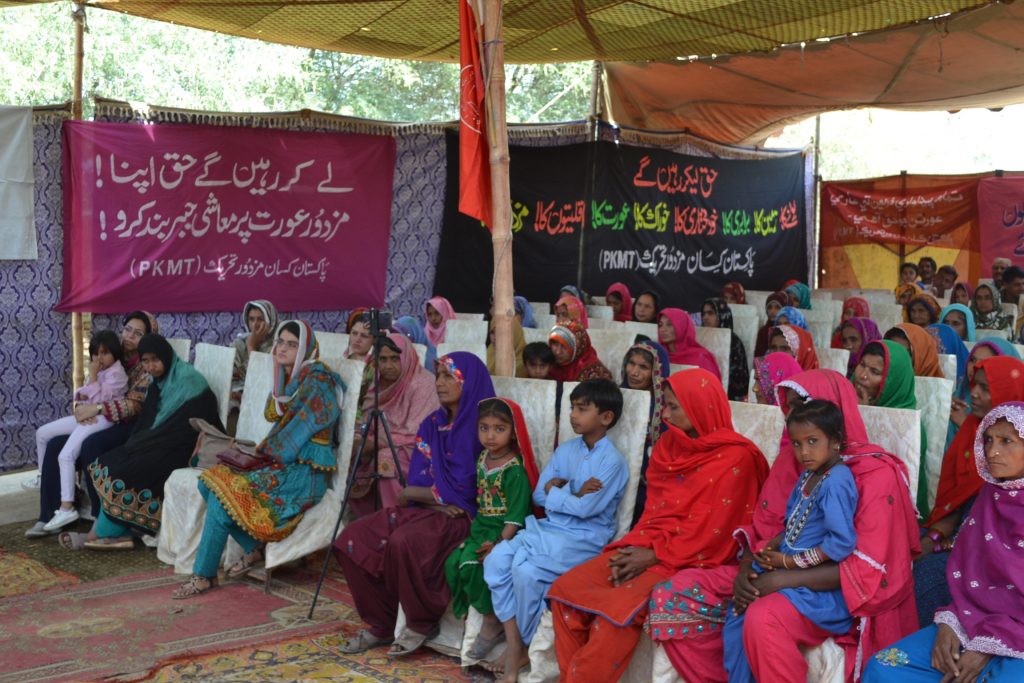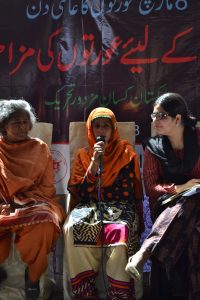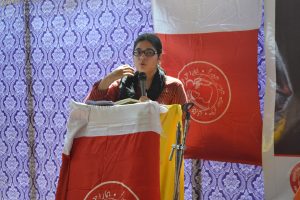PKMT Jazba Farmers’ Cooperative organized an awareness session program based on the Agroecology farming and sustainable agriculture on village level at different districts of Sindh, Punjab and KP. In Sindh district Tando Mohammad Khan, Shikarpur and Ghotki, in Punjab district Multan and in KP district Haripur and Lower Dir the session were organized.
The session begins with the introduction of the team and the farmers. The team asks different questions from the farmers like who cultivate the land and which sort of cultivation is going on nowadays?
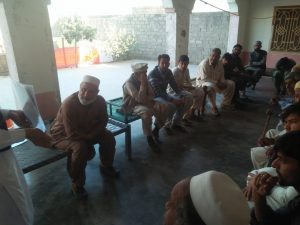
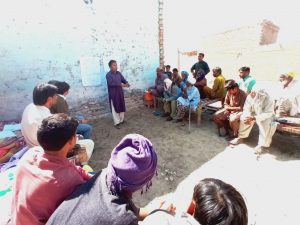
The participants replied that nowadays, we are using artificial means of production, which had chemicals in it, and we use chemical fertilizer in cultivation. Different topics of production and consumption were discussed with the help of pictures.
Unhealthy Production: The participants were told about the unhealthy food production that how modern machinery and chemicals are introduced to increase the production for example, breeding of cows by using artificial means, increasing of milk and meat of animals, increasing chemical spray, fertilizer, use of hybrid seeds and genetically modified seeds. The participants agree that they use the chemicals and machinery which results increase in diseases and unemployment.
Unhealthy Consumption: The participants were told about the unhealthy food like big companies use artificial methods in the preparation of food and are enforced on us for example, Potato chips, burgers, pizzas and unbalanced diet. The participants said that the junk food made by the companies has no energy, the threat of diseases increases and the food is also expensive. Capitalism increases class system. The rich influence on poor just because of this system. The working class is deprived of basic needs of life like food and health; we should not use these things.
Healthy Production: The participants were shown opposite mechanical and artificial method of production. The natural and traditional ways of farming, which includes milking, traditional way of cultivating pure and healthy food. According to our history, we use traditional seeds and eat pure food and live in a clean environment for centuries. The capitalists now capture the markets enforced farmers and labors into poverty.
Healthy Consumption: The participants said that the food from companies are unhealthy, the bread, Saag (local spinach), Lassi, butter, pure ghee are healthy foods. We should promote our own things, which we get through natural means.
Poverty and hunger! Why ? The adopting of chemical methods and an increase in production, the participants said that hunger, poverty and unemployment is increasing day by day. Continue reading →

